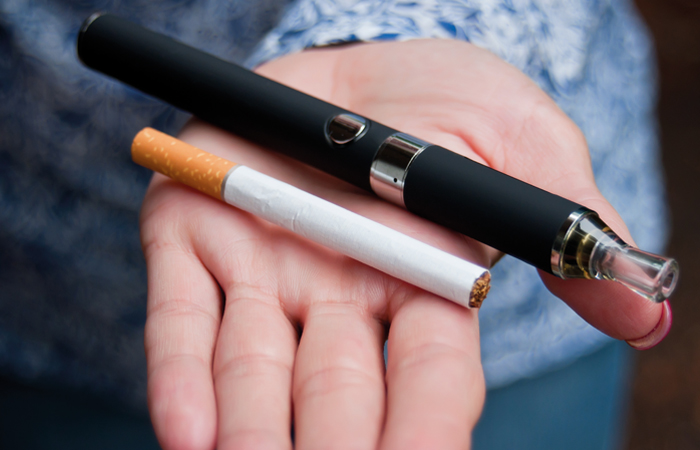Stopping smoking
There is no smoker who won’t benefit from kicking their habit. Stopping smoking lowers the risk of developing smoking-related health problems and slows the deterioration of issues that have already arisen, improving quality of life as a consequence. The health of family and friends will also improve as a result of not being exposed to second-hand smoke, and the financial savings can be considerable.
To improve customers chances of quitting, a combination of pharmacy advice and support, alongside OTC options, is vital.
Nicotine replacement therapy
Nicotine replacement therapy (NRT) products contain nicotine, but at a much lower level and without all the other harmful chemicals that are present in tobacco smoke, such as carbon monoxide and tar. NRT helps to control cravings and reduces withdrawal symptoms such as moodiness, irritability and difficulty concentrating.
There are lots of different formulations available, including patches, gum, microtabs, lozenges, inhalators and sprays for the mouth or nose. There is no evidence that any one form is more effective than another, so it really comes down to personal preference.
Someone who thinks they might miss the hand-to-mouth action of smoking might do well with a cigarette-like inhalator device, whereas patches that can be put on and not thought about for the rest of the day might be better for someone who works in an environment where it is difficult to take breaks. Combining products can also be helpful for some people, particularly very heavy smokers. For instance, a patch can be worn for a gradual dose of nicotine and a spray can provide rapid craving relief.
The idea is to reduce the dose of NRT after eight to 12 weeks and then stop altogether, although it is better for health and wealth to continue on NRT for as long as the person feels necessary rather than going back to smoking.
POM products
Pharmacies may be able to supply cytisine, a prescription medicine now available in the UK, or Zyban (bupropion) if there is a patient group direct (PGD) in place to support a smoking cessation service. Champix (varenicline) is currently unavailable due to supply issues. Pharmacy staff can discuss options available with the pharmacist.
E-cigarettes
These simulate cigarette smoking and deliver nicotine, and have been shown to help some people successfully quit cigarette smoking.
E-cigarettes are not completely risk free, but the NHS says they are far less harmful than cigarettes. They do not produce tar or carbon monoxide, although they do contain potentially harmful chemicals, albeit at lower levels than in cigarette smoke.
The National Institute for Health and Care (NICE) guidance from 2021 advises that e-cigarettes can be used as a stop smoking intervention.
Currently, by law, e-cigarettes must not be supplied to people under the age of 18. If customers ask about e-cigarettes, explain the options available and refer to the pharmacist, if required.
Did you know?
Smoking can impact fertility in some cases, negatively affecting hormone production and making it difficult to conceive.



